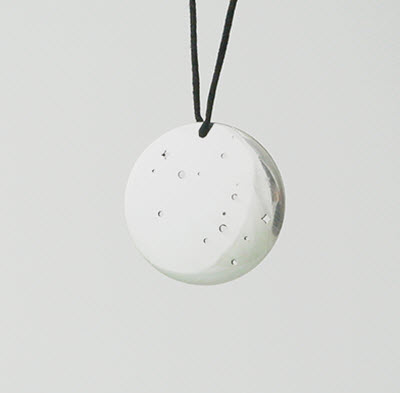Valentine’s Day cards can get pretty boring. But MIT is enabling true nerd romance to blossom with the first customizable 3D-printed jewelry just in time for the lovers’ holiday.
A team of engineers from the Massachusetts Institute of Technology (MIT) and Cornell University have launched a new company, Matter.io, and a new service that lets you design your own 3D jewelry. You can have jewelry printed in silver, metal, or plastic and delivered to your door.
The service shows how the craze around 3D printing is leading to one-upsmanship in providing a wider variety of applications that are more broadly interesting to consumers.
The 3D printing services like Shapeways make it easy to get 3D-printed items made from digital designs, but creating such unique designs in the first place is hard for consumers to do.
Cambridge, Mass.-based Matter.io has created Dyo, (short for “design your own”). The consumer-oriented platform offers design tools to make it easy for anyone with an Internet connection to create their own 3D-printed objects. Just as eBay allowed anyone to sell things, Dyo.co wants to help anyone make things.
Consumers can write unique messages and other personal information on jewelry such as rings and pendants. They can personalize each of the pieces in real time, using the company’s web-based 3D modeling software. The user can see realistic previews of their items with a range of different materials. Prices range from $30 to $140, including shipping costs.
After Valentine’s Day, Matter.io will continue to develop a browser-based 3D modeling engine to let designers and brands launch customizable 3D-printed objects.
“The real innovation of 3D printing is customization or being able to manufacture at a scale of one,” said Dylan Reid, chief executive of Matter.io. “With 3D printing there’s no cost to personalization as every item that comes off a 3D printing production line can be completely different and designed specifically for each individual end user. That’s a complete paradigm shift for product design, but one that is limited by the fact that most consumers don’t want to use complex design software or have to ability create things from scratch.”
The Matter.io team includes former director of MIT Media Lab, Frank Moss. Angel investors include Jim Pallotta and Andy Palmer, among others.
VentureBeat's mission is to be a digital town square for technical decision-makers to gain knowledge about transformative enterprise technology and transact. Learn More





![Reblog this post [with Zemanta]](http://img.zemanta.com/reblog_e.png?x-id=1747029b-9bd8-45d4-8c51-51d8e491b03c)
